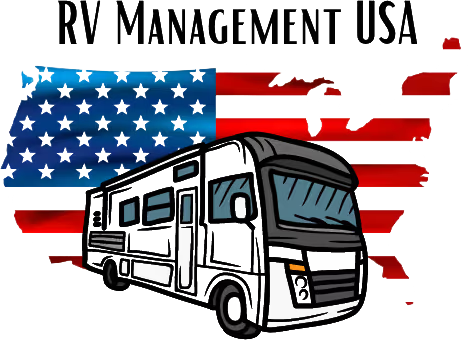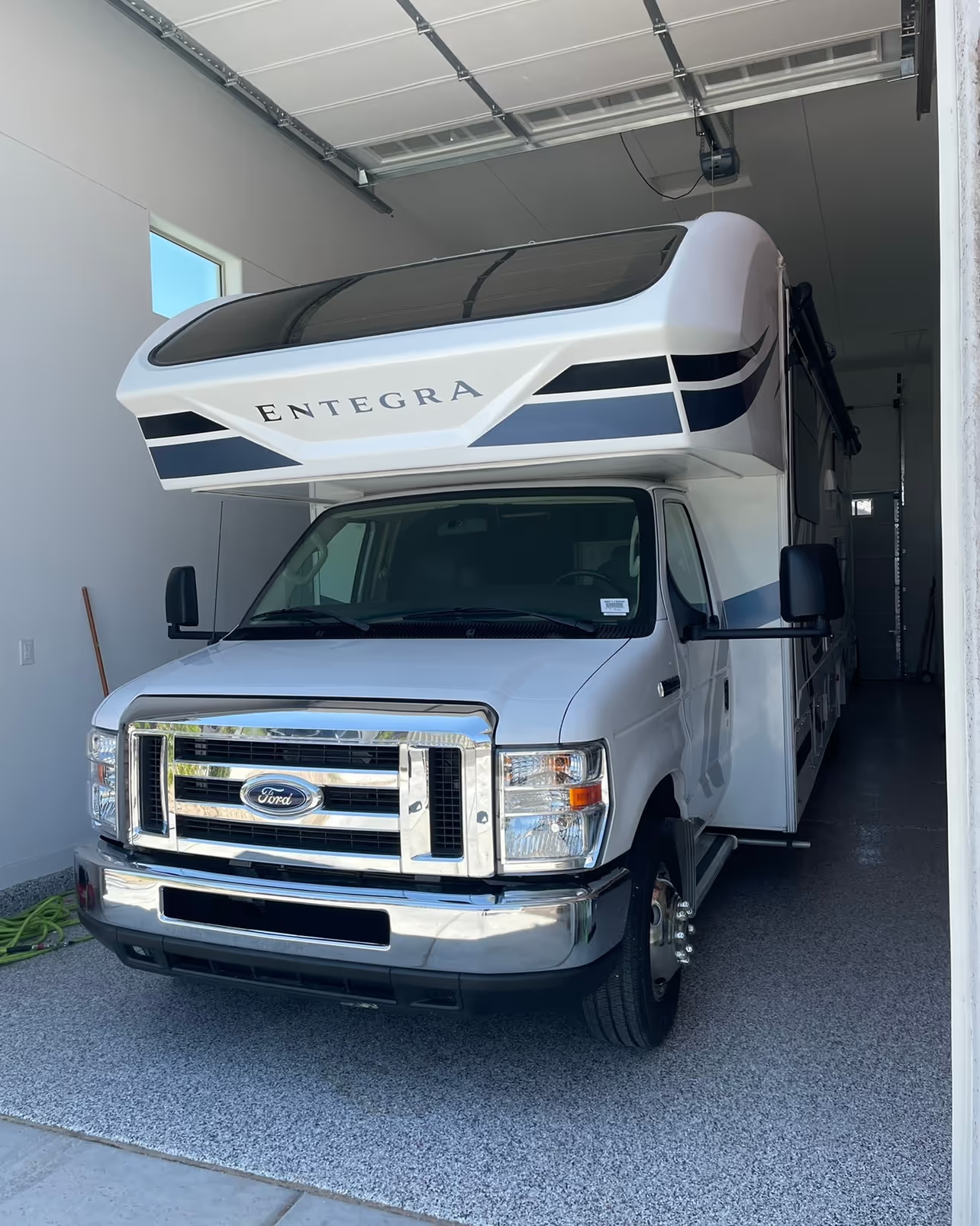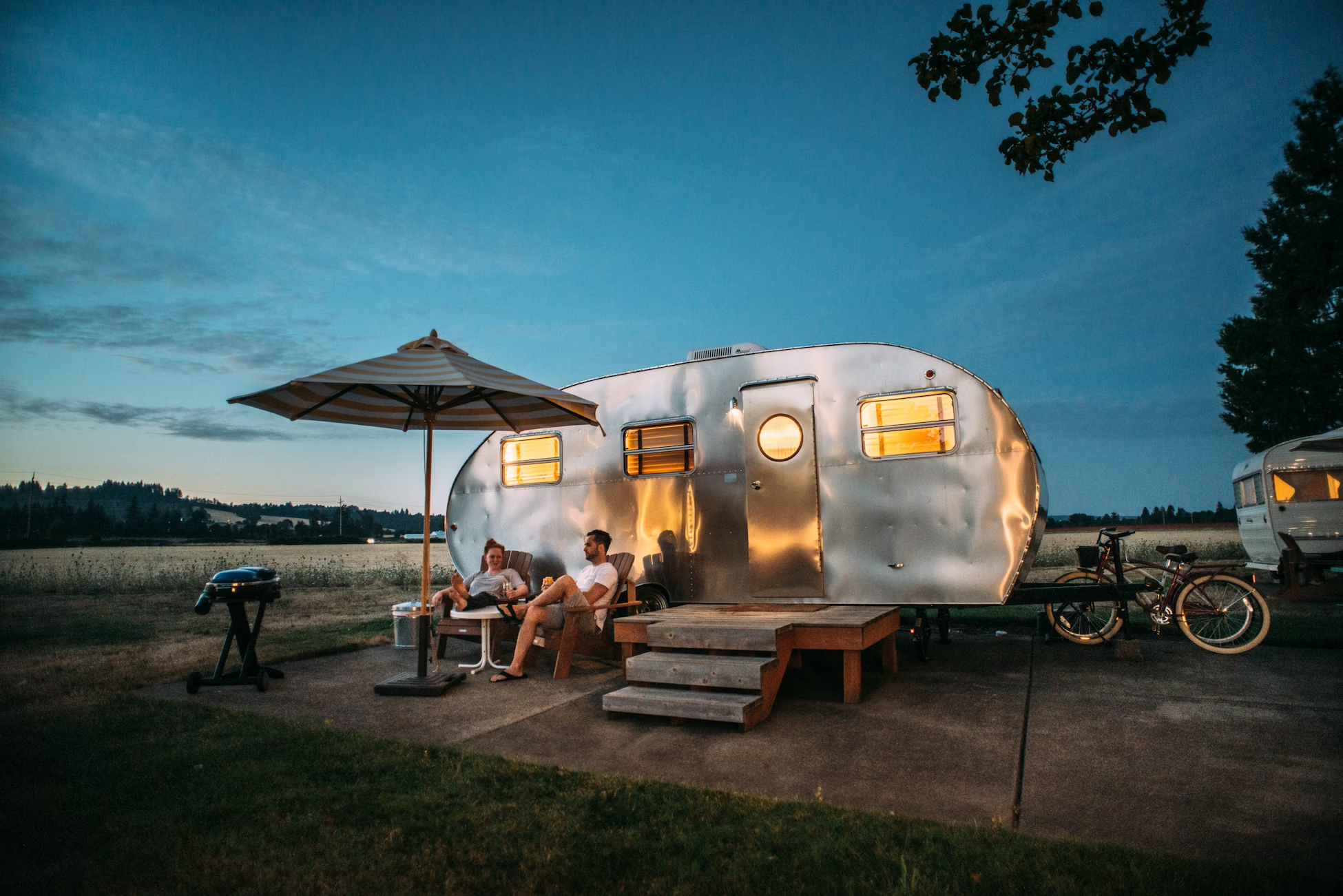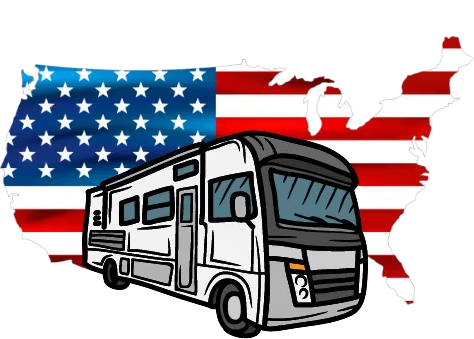If your RV sits idle for most of the year, you might be missing out on one of the most overlooked forms of income in North America. Renting your RV. This can turn a depreciating asset into a monthly revenue stream. But what does it really take? How much can you earn? And is it worth the hassle?
This foundational guide explores everything you need to know to successfully rent out your RV, whether you are doing it yourself or having it managed professionally by a company like RV Management USA. From income breakdowns and management options to insurance, upkeep, and horror stories to avoid, we’ll help you decide if renting your RV is the right financial move for you.
Table of Contents
- How Much Can I Make Renting My RV? Income Breakdown
- Renting My Own RV vs. RV Rental Management: Which Is Best?
- Hidden Costs of Renting Your RV & How to Reduce Them
- How to Keep Your RV in Top Shape While Renting It Out
- Step-by-Step Guide to Renting Your RV Successfully
- RV Rental Insurance: What You Need to Know Before Starting
- Pros & Cons of Renting Your RV: Is It Worth It?
- How to Attract More Renters & Maximize RV Bookings
- RV Rental Horror Stories & How to Avoid Them
- RV Rental Consignment Explained: Passive Income Without Hassle
1. How Much Can I Make Renting My RV? Income Breakdown

The big question most RV owners ask is: can this actually make me money?
The short answer? Yes—if done right.
Let’s take a look at a typical example:
Class C Motorhome Example
- Nightly rate: $200
- Average nights rented/month: 15
- Gross revenue/month: $3,000
- RVM Revenue Split: 45% owner / 45% manager / 10% RVM
You receive: $1,350/month before expenses.
Annualized: $16,200/year
That’s for just 15 nights booked per month! Owners in high-demand areas or with premium models can rent 20+ nights/month, increasing returns significantly. And keep in mind, this is totally passive income for RV owners. The territory manager does all the work.
What affects your earnings?
- Location: Urban and vacation destinations have higher demand
- Seasonality: Summer and school holidays drive most bookings
- RV type: Class C and B units are consistently the most rented
- Condition and cleanliness: More five-star reviews = more bookings
2. Renting My Own RV vs. RV Rental Management: Which Is Best?
Many owners try the DIY route first, using platforms like Outdoorsy or RVezy. But the reality is that managing your own rentals comes with a steep learning curve.

The key trade-off is time vs. ease. If you're looking to treat this like a business and have ample time to handle calls, cleanings, claims, and coordination—DIY might work. But if you're seeking true passive income, RV management is the way to go.
3. Hidden Costs of Renting Your RV & How to Reduce Them

Gross revenue doesn’t equal net profit. Here's what many first-time RV owners overlook:
- Cleaning supplies: Add up quickly if self-managed
- Prep time: At least a couple hours per turnaround
- Maintenance & repairs: You need to have access to a good mechanic or RV tech in your area
- Platform fees: Outdoorsy takes 20–25%
- Insurance deductibles: Can be $1,500–$2,500 for a claim (renters usually pay this)
- Depreciation: Offset by income and tax deductions
How to reduce these costs:
- Join a rental management program like RVM with bundled services and built in discounts on the platforms
- Use depreciation tax deductions (Section 179 in the U.S.) - RVM can help you with this
- Invest in durable materials: stain-resistant upholstery, rugged flooring, etc
- Bundle cleanings and repairs with local service pros for a better rate
4. How to Keep Your RV in Top Shape While Renting It Out
Maintaining your RV is both a performance and brand strategy. Poorly maintained RVs break down more, get worse reviews, and earn less.
Best practices:
- Quarterly inspections (more often if high volume)
- Document all maintenance with photos and receipts
- Replace linens, small appliances, and essentials regularly
- Require renters to follow your walkthrough checklist
- Add signage and QR codes inside to guide usage (e.g., dumping tanks, slide-out use)
RVM managers ensure regular inspections, routine cleanings, and renter education as part of the program.
5. Step-by-Step Guide to Renting Your RV Successfully

Whether you're self-managing or joining a program like RVM, the process typically looks like this:
- Prepare your RV: Clean, inspect, stock with essentials
- Create a compelling listing: Photos, specs, walkthrough videos
- List on rental platforms or join a management program
- Screen renters (if DIY): Ask about experience, destination, driving history, etc.
- Rental handoff: Walkthrough, pre-trip inspection documents
- Post-trip: Damage check, cleaning, turnover
- Track income & expenses
With RVM, all of this is handled by your assigned Territory Manager. Your job? Keep your direct deposit info updated so you can receive your payouts.
6. RV Rental Insurance: What You Need to Know Before Starting
Insurance is one of the biggest concerns for new RV hosts—and rightly so.
Two main options:
- Peer-to-peer platforms: Offer built in commercial rental coverage
- Specialized commercial policies: For serious volume or off-platform rentals
Typical coverage includes:
- $1M liability coverage
- Physical damage
- Roadside assistance
- Deductibles range from $1,000–$2,500
When renting via RVM's rental management service, insurance is built into the program—so you don’t have to shop around. Plus, damage claims are handled by your TM, reducing your workload.
7. Pros & Cons of Renting Your RV: Is It Worth It?
Pros:
- Turn a parked asset into monthly income
- Offset loan payments or storage costs
- Tax deductions (depreciation, mileage, supplies)
- Share your RV with other families
- Programs like RVM make it hands-off
Cons:
- Wear and tear over time
- Upfront prep required
- Insurance claims (rare, but possible)
- Must trust others with your vehicle
The right management partner dramatically reduces the downsides while keeping the income potential high.
8. How to Attract More Renters & Maximize RV Bookings

Want more bookings? Treat your RV like a boutique hotel on wheels.
Top strategies:
- High-quality photos (exterior, interior, details)
- Include a welcome basket or guidebook
- Allow pet-friendly rentals (huge demand)
- Offer delivery/setup services (for a fee)
- Respond quickly to inquiries (platforms reward this)
- Maintain a five-star average with great service
Being listed with RVM also increases your reach—your RV is plugged into a professionally managed fleet with recurring customers.
9. RV Rental Horror Stories & How to Avoid Them
Yes, horror stories exist—but they’re mostly preventable.
Examples:
- Renter drives under low bridge, rips off A/C
- Tanks left full and overflowing
- Smoking inside (against rules)
- Damaged awnings, bent slide-outs
How to avoid:
- Clear walkthrough videos and renter screening protocols
- Require renters to sign SRA (Supplemental Rental Agreement)
- Install GPS tracker with speed alerts
- Professional orientation and test drive for first-time drivers
- Use deposit + insurance to protect your asset!
10. RV Rental Consignment Explained: Passive Income Without Hassle
RV rental consignment programs, like RV Management USA (RVM), offer an alternative to DIY rental chaos. Here’s how it works:
- You own the RV
- A local Territory Manager handles everything: listing, bookings, cleaning, communication, etc
- You get 45% of the net rental revenue
The model is ideal for owners who want:
- Monthly passive income
- Expert maintenance and cleaning
- Minimal renter interaction
- Consistent reporting and remittance
- Higher average earnings
Bonus: If you're still using your RV occasionally, RVM allows you to block off personal dates to use your RV.
Final Thought
You don’t need to sell your RV—or let it sit unused. With smart planning and the right partners, your RV can generate thousands in annual income while still being available for your own adventures.
And best of all? You can do it passively and safely, with RV Management USA.
– RVM Team













